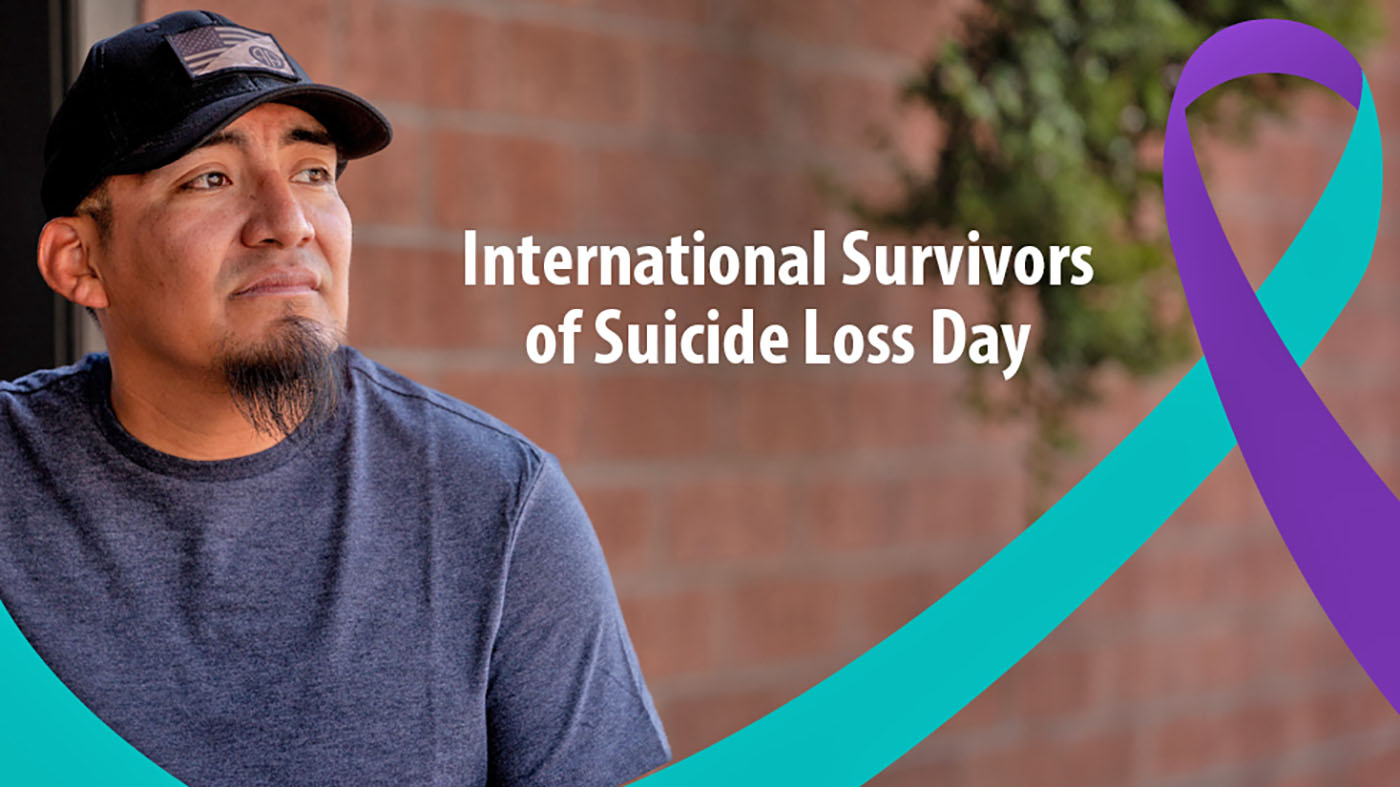As Thanksgiving approaches, it’s common to see stores and restaurants decorated with signs saying “Grateful” and “Blessed.” Even commercials and billboards tell us we should feel thankfulness and appreciation for what we have.
Though the sentiment of Thanksgiving is meaningful to many, not everyone experiences gratitude at this time of year. For people who have lost a loved one to suicide, the holidays can often be a time of heartache and struggle.
International Survivors of Suicide Loss Day—held on the third Saturday of November and before the rush of the December holidays—is a day of healing for those who have lost a loved one to suicide. It’s a way for survivors to gather strength from each other before focusing on family celebrations.
The American Foundation for Suicide Prevention (AFSP) describes International Survivors of Suicide Loss Day as an event in which survivors of suicide loss come together to find connection, understanding and hope through their shared experience. It will be held this year on Nov. 18. Events are scheduled across the world throughout the month. Find ones near you here.
Though International Survivors of Suicide Loss Day is for all survivors, VA offers resources specific to Veterans and their families. Whether you’re a Veteran who lost somebody you served with to suicide or you lost your Veteran spouse to suicide or you’re a health care provider helping a Veteran recover from a suicide attempt, Uniting for Suicide Postvention can help.
What is suicide postvention?
Most people are familiar with the term “suicide prevention,” but “suicide postvention” is less commonly understood and equally as important. Suicide postvention builds upon prevention efforts by providing immediate and ongoing support to those impacted by a suicide loss. We know that exposure to suicide loss is widespread. On average, at least 135 people are affected by a single suicide. Postvention is critical for healing after suicide.
Suicide postvention for family and friends
It’s common for family members and friends to face changes in their social, emotional, and physical health after the suicide death of someone they know.
Many reactions are normal and can be expected, like sadness, disbelief, anger, numbness and shock. Other feelings—like shame, guilt or relief—are also common but may feel more unexpected. Everyone’s reaction is unique. You may be feeling every emotion described above, some of them or even no emotion. What you feel may change every day. No one has the same experience, but sharing your story can help in healing.
Here are some resources to connect with if you have lost a Veteran to suicide:
- Tragedy Assistance Program for Survivors (TAPS): Resources and programs for suicide postvention that help with immediate stabilization, support with processing grief and opportunities for healing and growth
- AFSP Healing Conversations: Peer support meetings (phone, virtual, or in-person) with AFSP volunteers who are also survivors of suicide loss
- Friends for Survival: Suicide loss survivor programs, events and a comprehensive manual for starting suicide bereavement programs and groups
- Suicide Awareness Voices of Education (SAVE): Grief support and resources for suicide loss survivors
- AFSP Support Groups: Suicide bereavement support groups found in cities across the United States
- Samaritans Hope: In-person and virtual programs to connect with other survivors of suicide loss for comfort and shared understanding
If someone you know has lost a Veteran loved one to suicide, it can be difficult to know when and how to step in and help.
Here are some tips:
- Listen: Be ready, open and willing to have tough conversations. Know it may take time and you may need to keep checking in.
- Validate: Resist the desire to fix, reframe or advise the loss survivor. Try paraphrasing what you’ve heard in your own words.
- Support: Ask what the loss survivor needs help with and assist with tangible, supportive tasks, like delivering meals or walking their dogs. Relieve some pressure by helping the loss survivor navigate the support resources available to them.
- Honor: Show the loss survivor you remember the person who died. Share memories and proactively remember important dates. Remind the loss survivor you continue to value the life of the person who has died and that they will never be forgotten.
Postvention resources provide hope
Suicide prevention, for good reason, gets the most attention from government agencies and community groups. But suicide loss survivors also need recognition and resources. On International Survivors of Suicide Loss Day, and all year, our Uniting for Suicide Postvention program can help Veterans and their supporters. If you’re a Veteran in crisis or concerned about one, contact the Veterans Crisis Line to receive 24/7 confidential support. You don’t have to be enrolled in VA benefits or health care to connect. To reach responders, Dial 988 then Press 1, chat online at VeteransCrisisLine.net/Chat, or text 838255.
Topics in this story
Link Disclaimer
This page includes links to other websites outside our control and jurisdiction. VA is not responsible for the privacy practices or the content of non-VA Web sites. We encourage you to review the privacy policy or terms and conditions of those sites to fully understand what information is collected and how it is used.
More Stories
Study underscores important role COVID vaccination can have in protecting Veterans from infection and reducing long-term health consequences
Columbia VA’s robotic surgery teams completed their 800th robotic surgery and are on schedule to hit 1,000 by the end of the year.
In a decentralized clinical trial, Veterans can participate from their own homes or local VA instead of having to travel to a research site.






